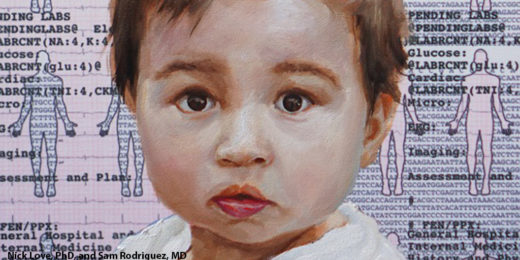One fairly recent entrant into the world of digital health is a pill that detects when it is ingested, then sends a signal to an app and to people the patient designates, such as clinicians or family members.
The technology joins a collection of other digital devices that are being developed or are already in use to monitor health, such as a meter that measures glucose levels for diabetes patients and a mobile device that tracks the number of steps a heart patient takes every day.
In a recent paper published in the American Journal of Bioethics, a Stanford psychiatrist and three other bioethicists note the potential benefits of the emerging technologies -- they can gather more accurate information about how patients are taking their medication and potentially improve patient outcomes and lower the number of hospitalizations. But the researchers also call for more study of many potential ethical issues they introduce.
"Digital medicine -- combining technological advances in information technology, artificial intelligence, and big data with those of pharmaceutical, biotechnology, and medical device companies -- represents a bold new frontier in medical care," wrote the authors, who include Laura B. Dunn, MD, Stanford professor of psychiatry and behavioral sciences. "Accompanying these technological advances are emerging ethical issues, engendered by the rapid pace of technology and the challenges of managing vast amounts of patients' medical, behavioral and personal information."
Included in their examples of emerging self-acting technology is a new drug, called Abilify MyCite, that gained FDA approval last year and is undergoing a limited rollout in the United States. The digital pill, developed by the Otsuka Pharmaceutical company, combines sensor technology with Abilify, which is used to treat a range of serious mental illnesses. In practice, a psychiatrist who prescribes it to a patient with schizophrenia might be better positioned to help that patient if they are certain he or she is taking the medicine as prescribed, the authors said.
But the authors also laid out multiple ethical considerations they said should be examined amid the quickly growing development of many kinds of self-acting devices and uses in digital medication.
Among them are whether patients fully understand how their health information may be collected, used, stored and shared. Other considerations are whether access to digital medicine will be equitable, as well as the impact on clinicians of prescribing them to patients. For example, what is their obligation to check the data? Would they be liable for bad outcomes? And would they be subject to external monitoring, for example, from insurers or drug companies?
Of particular concern, Dunn said, is the potential negative effect on the doctor-patient relationship, especially with regard to mutual trust. Dunn, who is one of four authors on the article, said that psychiatrists would likely agree that the goal of prescribing something like Abilify MyCite would be to enhance relationships with a patients, not to replace those relationships.
"It could lead to a better relationship because patients are sharing more data" that can be helpful, in the same way data from fitness tracking devices might be, Dunn said. But she echoes the article's theme that a cautious approach is essential, and more study is needed on how physicians and patients view the new technology.
"I would view it as another tool that could be useful in the relationship, but I also I would have to be careful, as a psychiatrist, how I use it -- as I would be with any tool," said Dunn, who has not prescribed digital medicine in her own practice.
Besides Dunn, the article's authors include bioethics experts Craig Klugman, PhD; Jack Schwartz, JD; and Glenn Cohen, JD. The four have served as consultants for Otsuka Pharmaceuticals, advising on ethical issues related to the use of digital medicine, but they noted that the company did not fund the research for the article, nor did the company play any role in the conceptualization, drafting, revising or reviewing of the article.
Image by RonnyK






